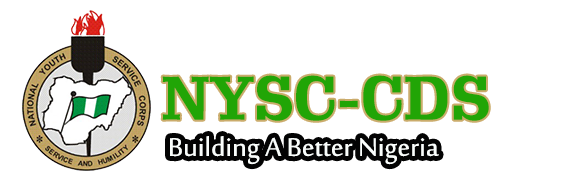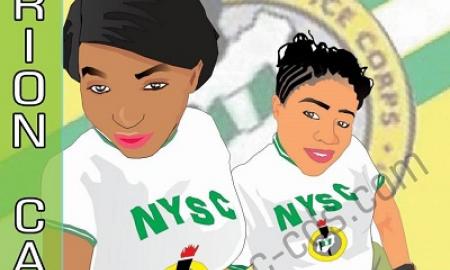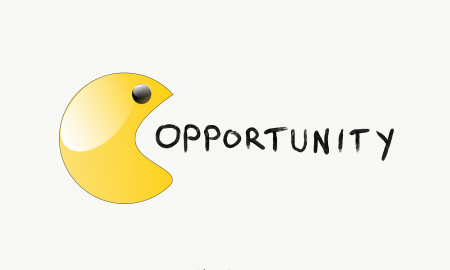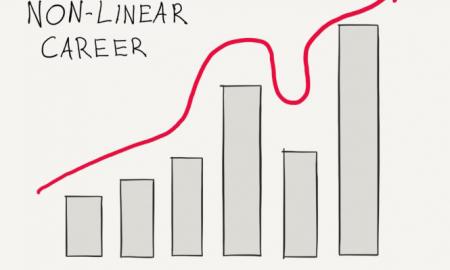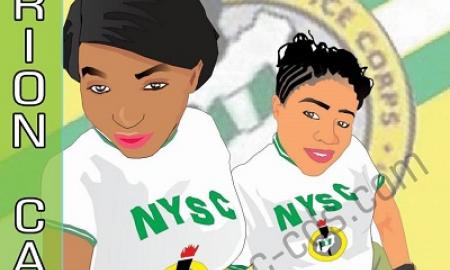
How To Start Life After NYSC Service Year is something worth planning for ahead of your Passing out ceremony. Let me take you on a talk on how about Starting well!
How To Start Life After NYSC Service Year
Maybe at a point in time, you are on the verge of concluding your service year as a youth corps member and you are thinking about how to start life after NYSC.
The first question that comes to your mind might be “What does life has for me after NYSC?” or how will life treat me after NYSC? The truth is you are not alone in these dilemmas. But the good news is that you are in luck because this article will help you figure it out.
Keep in mind that the National Youth Service Corps (NYSC) program does not include a pension plan or any other provisions for corps members. And the "Allawee" Alert will stop appearing once your service is over. Therefore, the sooner you start adjusting to life after NYSC, the better.
Now that your NYSC service is about to end, there are certain questions you should be asking yourself. You will be on the right path after NYSC if you answer these questions.
- What skill set do I possess?
- What am passionate about?
- What are my opportunities like?
- What are my plans?
As a corps member, you should be asking yourself the questions listed above. You should seek out rational and comprehensive solutions to these concerns if you intend to take on the world.
How To Start Life After NYSC
There are several things you should be doing to prevent being on the unfavorable side of life after your NYSC service year, which brings us to the subject of discussion, "How to start life after NYSC."
-
Develop Your Skills Set
After their NYSC service is over, those who possess one or both skill sets enjoy an advantage in life for the initial few months. A "skill set" is a particular set of skills or abilities needed to do a profession.
If computer programming is your area of expertise, it's time to start updating your knowledge to meet the most recent requirements.
And if you don't yet have any skills mastered, the sooner you choose one and study it, the better it will be for you.
-
Pursue Your Passion
Yes, this is the time to pursue what you are passionate about. What you enjoy doing naturally is your passion. It can also be what makes you happy on the inside.
Additionally, your interest could even be a talent. Therefore, begin devoting time and effort to the pursuits that ignite your passion, and you will be astounded by the change that results.
-
Take Advantage of Job Opportunities
Instead of lowering your arms, look for possibilities. Reach out to as many people as you can. Send your resume to anyone you think might be able to help. Give your CV to friends and co-workers as well because you should never undervalue anyone.
Inform them about your educational background and skill set. And if you do not receive a response right away after completing your NYSC duty, you can work on developing your own business abilities, such as catering or hair braiding.
Here are things you should include in your resume to catch recruiters’ attention at a glance.
a. Your contact details
- Name
- Location: Just your city will do; there's no need to enter your entire address. Another thing recruiters check for in resumes is where you are located and whether you can work in the city or suburb. Make it absolutely clear or provide an alternative explanation so they are not left trying to figure you out
- Contact Number
- Email Address
b. Past experience
A recruiter will first take note of your employment history, paying close attention to the firms you've held positions with in order to determine whether they are major corporations.
Since many may identify trends and patterns derived from all the other candidates who have worked there in the past, company recognition can reveal a lot about a prospect, including the talents, abilities, and more.
Therefore, if you've worked for a well-known corporation, your CV may be given more weight than others.
If not, it just means the recruiter needs to go deeper into your résumé to determine whether you are good or not.
- Job title – i.e., Credit Controller
- Company Name
- Dates of Employment – including month and year
- Responsibilities – bullet point what YOU did in your position, including any significant IT systems. Keep this concise.
c. Achievements
Any noteworthy accomplishments which YOU made during your time there – an example could be an award or training certification?
Your experience should be as detailed as possible on your resume since this is another highlight that recruiters check for a quick glance.
The fact that you are progressing in your career is a huge plus and having the responsibilities that the position requires will get your resume sent to the “call” pile!
d. The use of keywords
In order to evaluate whether the companies you've held positions with are major enterprises, a recruiter will first take notice of your employment history.
Company recognition can disclose a lot about a candidate, including their capabilities, abilities, and more.
This is because many people may be able to spot trends and patterns derived from all the previous candidates who have worked there in the past. Therefore, your CV can be given more weight than others' if you've worked for a reputable company.
If not, it just means the hiring manager needs to look into your resume more carefully to see if you're a good fit.
As an illustration, a keyword for marketing may be "Google AdWords/ Marcato," and if you're searching for a sales position, you might also want to include "sales."
However, even though you may want to add a few keywords that are related to your experience or the job you desire, you must still make sure that your resume flows properly and is genuine.
Avoid stuffing your CV with keywords because that will make employers throw it out immediately!
e. Employment gaps
It's completely acceptable to have gaps in your career history, but you want to make sure you explain them to potential employers in case they have questions.
The recruiter could wonder what you were up to and throw your resume in the garbage if you don't explain why you took a few years off your career.
f. Organization of your resume
A recruiter nevertheless takes note of your resume's overall organization even though they are primarily interested in your experience, knowledge, and talents. Is it error-free in terms of grammar and spelling?
Is it simple to read or too complicated? All of this will be taken into consideration when determining whether they want to pursue you or not. Additionally, avoid making your resume an 8-page spread. Reduce it to no more than two pages in length.
g. Education
- Title of Qualification
- Name of School / University / College
- Year of Completion
h. Appeal of the resume
Why not make a recruiter's job simpler by making your resume visually appealing? Resumes may be tedious.
Instead of choosing the dull style and colors that everyone else does, employ color and attractive typography to really catch their attention.
Get creative with your resume instead of merely using a template, especially if you're seeking for work in a creative sector, business, or niche. Also, lighten up a bit and add some personality to your resume!
i. Passion for personal projects
Why not demonstrate your uniqueness to recruiters by adding important personal initiatives when they see the same stuff on resume after resume?
This can definitely demonstrate your enthusiasm for the field and influence their decision to invite you in for a meeting with the bosses.
j. How modern the format is
Traditionally, resumes have always included an "Objective" statement at the start that describes the purpose of the document.
But that's unnecessary now that we're in the modern era! It is irrelevant to recruiters, and they don't want to see it. You can also omit the pronouns from your description of your experience and get right to the point!
Generally, I recommend that you tailor your resume to the job you are applying for. Include a cover letter or an outline of particular skills relevant to the role.
Make sure your employment and education history are in reverse chronological order, i.e., the most recent is on the top of your list - Ensure your resume is only 2 or 3 pages long
-
Implement Your Plans
You should have a plan of what to do, to be sure to get ready to start life after NYSC. Your plan could be to further your education by getting MSc (Masters) in the field of your choice or to get married after a service year. The major thing is just to have a plan of what to do.
Conclusion
Lastly, apart from searching for jobs, you can obtain a postgraduate form or start your own business depending on how much you have saved and the people willing to support you.
More so, you can do the three at the same time yes it works for some people, it can work for you too. But never compare yourself to others (your colleagues) at this point what worked for a person may not work for the order.
